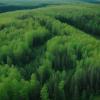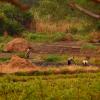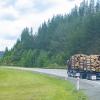Building on the research previously undertaken in the Ecosystems Services and Management and Water programs, the BNR Program fully exploits the potential for biodiversity research within integrated system analysis.
The program brings together different elements of land and aquatic ecosystems including agriculture, forests, and fisheries with water and the marine environment to inform global and regional policy assessments and provide robust science-based knowledge and foresight. The program aims to establish IIASA as an international community hub for biosphere research through innovative tool development; to lead the integration of biophysical-economic modeling with governance; to engage with stakeholders; and to facilitate community driven efforts. It provides policymaking support through core program and group research undertaken in the four BNR research groups.
BNR further engages in bilateral collaborations with other research programs and groups at the institute on key cross-cutting themes such as climate change adaptation and mitigation, the green economy, resilient food systems, transboundary governance, resource depletion and migration, and digital transformation.
Projects
Staff
News

23 July 2024
Fostering transformation of agrifood systems in Indonesia

22 July 2024
Are sustainable aviation fuels truly sustainable?

17 July 2024
Forests endure as carbon sink despite regional pressures
Events
Potsdam Institute for Climate Impact Research (PIK) & Online
German IIASA Networking Event: "Systems analysis for a sustainable and peaceful future"
Focus

17 July 2024
Biodiversity lessons from nature
IIASA researchers Silvia Artuso and Juliette Martin reflect on a recent workshop presented at the Institute as part of the IIASA School Engagement Initiative, during which they introduced students to systems analysis and took them on an adventure to explore the amazing biodiversity of Laxenburg park.

08 July 2024
Future food demand in The Gambia: can increased crop productivity and climate adaptation close the supply–demand gap?
The Gambia faces significant food availability issues due to low agricultural productivity. IIASA researchers and colleagues used the FABLE Calculator to explore actions to reduce the food supply-demand gap by 2050. The results, published in Food Security, reveal that current cropland will not meet food demand by 2050.
Publications
Escobar Lanzuela, N. , Seber, G., Skalský, R. , Wögerer, M., Jung, M., & Malina, R. (2024). Spatially-explicit land use change emissions and carbon payback times of biofuels under the carbon offsetting and reduction scheme for international aviation. Science of the Total Environment 948 e174635. 10.1016/j.scitotenv.2024.174635. Martin, J. , Kanade, R., Bhadbhade, N., Joy, K.J., Thomas, B.K., Willaarts, B. , & Hanger-Kopp, S. (2024). Review of the food, water and biodiversity nexus in India. Environmental Science & Policy 159 e103826. 10.1016/j.envsci.2024.103826. Pashanejad Silab, E., Kharrazi, A. , Araujo Gutierrez, Z., Robinson, B., Fath, B. , & Parrott, L. (2024). A functional connectivity approach for exploring interactions of multiple ecosystem services in the context of agricultural landscapes in the Canadian prairies. Ecosystem Services 68 e101639. 10.1016/j.ecoser.2024.101639. Orlov, A., Jägermeyr, J., Müller, C., Daloz, A.S., Zabel, F., Minoli, S., Liu, W., Lin, T.-S., Jain, A.K., Folberth, C. , Okada, M., Poschlod, B., Smerald, A., Schneider, J.M., & Sillmann, J. (2024). Human heat stress could offset potential economic benefits of CO2 fertilization in crop production under a high-emissions scenario. One Earth 7 (7) 1250-1265. 10.1016/j.oneear.2024.06.012. Willaarts, B.A. , Novais, M.H., González Navarro, J.M., López Lara, G., Morais, M., Zilliox, E., & Peñate Suárez, B. (2024). The governance of the water-energy nexus: Co-produced narratives to take stock and address energy dependencies of the urban water cycle in Atlantic Europe. Environmental Science & Policy 160 e103835. 10.1016/j.envsci.2024.103835. Hordijk, I., Bialic‐Murphy, L., Lauber, T., Routh, D., Poorter, L., Rivers, M., ter Steege, H., Liang, J., Reich, P., de‐Miguel, S., Nabuurs, G.-J., Gamarra, J., Chen, H., Zhou, M., Wiser, S., Pretzsch, H., Paquette, A., Picard, N., Hérault, B., Bastin, J.-F., Alberti, G., Abegg, M., Adou Yao, Y., Almeyda Zambrano, A., Alvarado, B., Alvarez‐Davila, E., Alvarez‐Loayza, P., Alves, L., Ammer, C., Antón‐Fernández, C., Araujo‐Murakami, A., Arroyo, L., Avitabile, V., Aymard Corredor, G., Baker, T., Banki, O., Barroso, J., Bastian, M., Birigazzi, L., Birnbaum, P., Bitariho, R., Boeckx, P., Bongers, F., Bouriaud, O., Brancalion, P., Brandl, S., Brienen, R., Broadbent, E., Bruelheide, H., Bussotti, F., Gatti, R., Cesar, R., Cesljar, G., Chazdon, R., Chisholm, C., Cienciala, E., Clark, C., Clar, D., Colletta, G., Coomes, D., Valverde, F., Corral‐Rivas, J., Crim, P., Cumming, J., Dayanandan, S., de Gasper, A., Decuyper, M., Derroire, G., DeVries, B., Djordjevic, I., Iêda, A., Dourdain, A., Dolezal, J., Obiang, N., Enquist, B., Eyre, T., Fandohan, A., Fayle, T., Ferreira, L., Feldpausch, T., Finér, L., Fischer, M., Fletcher, C., Frizzera, L., Gianelle, D., Glick, H., Harris, D., Hector, A., Hemp, A., Hengeveld, G., Herbohn, J., Hillers, A., Honorio Coronado, E., Hui, C., Cho, H., Ibanez, T., Jung, I., Imai, N., Jagodzinski, A., Jaroszewicz, B., Johannsen, V., Joly, C., Jucker, T., Karminov, V., Kartawinata, K., Kearsley, E., Kenfack, D., Kennard, D., Kepfer‐Rojas, S., Keppel, G., Khan, M., Killeen, T., Kim, H., Kitayama, K., Köhl, M., Korjus, H., Kraxner, F., Laarmann, D., Lang, M., Lewis, S., Lu, H., Lukina, N., Maitner, B., Malhi, Y., Marcon, E., Marimon, B., Marimon‐Junior, B., Marshall, A., Martin, E., Martynenko, O., Meave, J., Melo‐Cruz, O., Mendoza, C., Merow, C., Miscicki, S., Mendoza, A., Moreno, V., Mukul, S., Mundhenk, P., Nava‐Miranda, M., Neill, D., Neldner, V., Nevenic, R., Ngugi, M., Niklaus, P., Oleksyn, J., Ontikov, P., Ortiz‐Malavasi, E., Pan, Y., Parada‐Gutierrez, A., Parfenova, E., Park, M., Parren, M., Parthasarathy, N., Peri, P., Pfautsch, S., Phillips, O., Piedade, M., Piotto, D., Pitman, N., Polo, I., Poulsen, A., Poulsen, J., Arevalo, F., Restrepo‐Correa, Z., Rodeghiero, M., Rolim, S., Roopsind, A., Rovero, F., Rutishauser, E., Saikia, P., Salas‐Eljatib, C., Schall, P., Shchepashchenko, D. , Scherer‐Lorenzen, M., Schmid, B., Schöngart, J., Searle, E., Seben, V., Serra‐Diaz, J., Sheil, D., Shvidenko, A., Silva‐Espejo, J., Silveira, M., Singh, J., Sist, P., Slik, F., Sonké, B., Souza, A., Stereńczak, K., Svenning, J.-C., Svoboda, M., Swanepoel, B., Targhetta, N., Tchebakova, N., Thomas, R., Tikhonova, E., Umunay, P., Usoltsev, V., Valencia, R., Valladares, F., van der Plas, F., Van Do, T., Van Nuland, M., Martinez, R., Verbeeck, H., Viana, H., Vibrans, A., Vieira, S., von Gadow, K., Wang, H.-F., Watson, J., Werner, G., Wittmann, F., Wortel, V., Zagt, R., Zawila‐Niedzwiecki, T., Zhang, C., Zhao, X., Zhu, Z.-X., Zo‐Bi, I., Maynard, D., & Crowther, T. (2024). Dominance and rarity in tree communities across the globe: Patterns, predictors and threats. Global Ecology and Biogeography ee13889. 10.1111/geb.13889.






